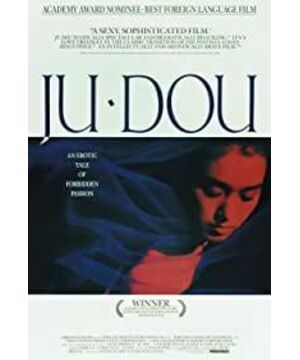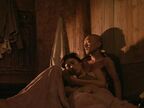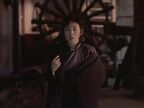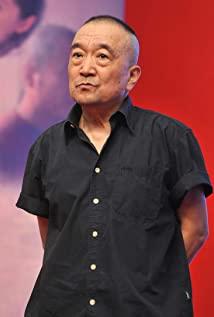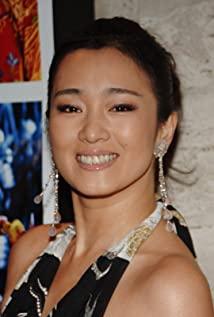I have been watching Zhang Yimou's movies these days, rewatching or watching new ones, and found many very interesting phenomena. Many of Zhang Yimou’s films start with walking. The characters walk on a certain road, and the camera turns to show the environment. Wei Minzhi’s walk in "No One Can Be Less", "Hero" enters the hall, and "Red Sorghum" carries a sedan chair. "If you have something to say," the city runs. The opening of this kind of walking directly throws the characters into an environment, without introduction and without purpose, walking straight on the road, full of the unknowable meaning of the times.
The theme of this film is a kind of confrontation of power. When the film described scenes several times, a lot of overhead shots were used. The overlapping eaves and the humans acting in the geometric figures formed by the eaves lines all showed a sense of blockade and oppression in a framework. When the first half of "Old Immortality" came out, it showed strong patriarchal rule and power of husband. As an adopted son, Tianqing was destined to be unloved. This is the destruction of blood relatives to people. Adopted sons are like beasts. , Only worthy of doing some "work he should do." According to the old immortal words, since I adopted him at the beginning, he has to be a cow and a horse. The same beast is the old immortal woman. This aunt is abused and bullied as a kind of breeding machine. This is also based on the patriarchal rule under the blood culture. There was a period when the aunt was pressed under the bench by the uncle, smashed and whipped, and it was full of sexual violence, with a sm look and feel, one is the angle relationship, the woman is the appendage of the patriarchal society, and the other is alienation Sex. Looking back, the two were also controlled by blood relatives. One was because of the patriarchy and the other because of the husband's power. The two victims had also been photographed with a bird's-eye view of the frame composition. It is reasonable for the two to be sympathetic to each other.
In the face of such a rule, what confrontations did the two make? Two paths were given. It's better to die than to live or escape-both of them are weak in their identities and cannot escape, but God gave them a way, and Lao Wudie was actually paralyzed. The transformation of power relations here is also the most ingenious aspect of the film. When the fake couple discovered that the power of the two suddenly exchanged with the power of the undead. When they were in a strong position, they spent the best time in their lives and gave birth to children, as if they were living a utopian life. One of the things I don’t understand as an audience is why I have to sleep with the old immortal, and put my son with him. If the hate is so paralyzed, no one sees it, and I have to sleep together forcibly. , Either is nonsense, or they dare not defy their social identity, this weakness is deeply rooted in their hearts.
After the power relationship was reversed, the two thought that everything would be fine. But the real power is just about to emerge. In fact, there is no power in the old undead. The power of the old undead comes from the entire social collective and social atmosphere. The questioning of the ancestors and a family during the banquet, the rumors in the villages and towns, the old undead jokingly leaned on the bench. Looking at the fake couple, Tian Qing broke down and cried out that he was his brother. In such a powerful atmosphere, it is not very strange that Tian Bai admits his wrong father. The blood relationship culture has firmly made him feel that he is a slave of a certain father. When the old immortal is drowned, Tian Bai laughs, this I realized that the power represented by the old immortal is only a borrowed power. He himself is ridiculous. What is really terrifying is that this power is everywhere in society.
Since then, the two are miserable, and the aunt once again proposed to escape. The submissive character has made Tianqing lose the courage to resist. The two pretended to block the coffin forty-nine times, each time they worshipped and obeyed the social framework. When Tian Qing discovered that her uncle was dead, she slapped her aunt fiercely. In fact, Tian Qing's heart was also assimilated, and his husband's arrogance was hidden in his heart.
The two suffocated to death, found a cellar, discarded material and life as a utopian image, seeking spiritual survival and physical sacrifice. But the reality is inseparable. Tianbai pulls back to reality, kills the father and saves the mother, the unshakable ideology is firmly rooted, and the completely dead aunt burns the entire courtyard, transplanting all the anger to the image of social architecture.
The most dazzling thing about the power confrontation in the whole film is that it is not limited to a single person. Instead, the death of the uncle is replaced by comical. It is quite politically correct in 90 years, but no further explanation has been made, even today. Culture is still rooted in the depths, no one will choose the ending of the death, the final explanation of the film is quite pessimistic.
So it is unshakable.
View more about Ju Dou reviews


